Basic measurement concepts Measurement Worksheets for Ages 4-5
7 filtered results
-
From - To
Introduce your young learners to basic measurement concepts with our engaging worksheets designed for ages 4-5. Our printable resources help children understand terms like length, height, weight, and volume through fun, interactive activities. Perfect for preschool and early elementary students, these worksheets foster crucial math skills, promoting curiosity and a love for learning. Each page is crafted to be developmentally appropriate, ensuring that kids grasp fundamental ideas while enjoying colorful illustrations and hands-on exercises. Start building a strong foundation in measurement today with Kids Academy’s expertly designed educational materials.
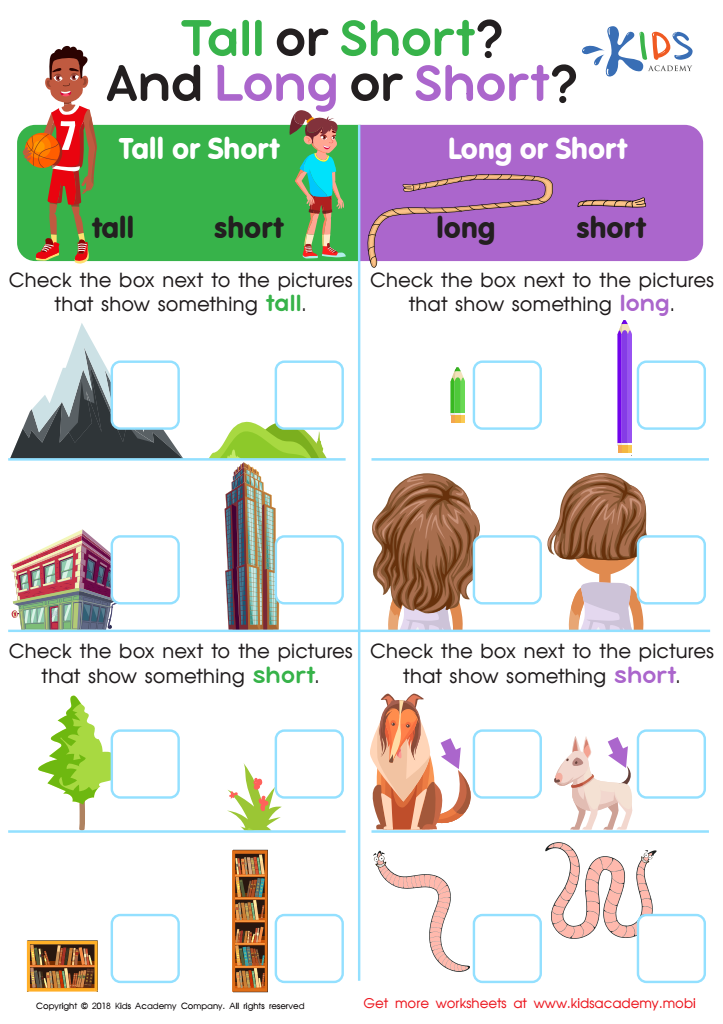

Tall or Short and Long or Short? Worksheet
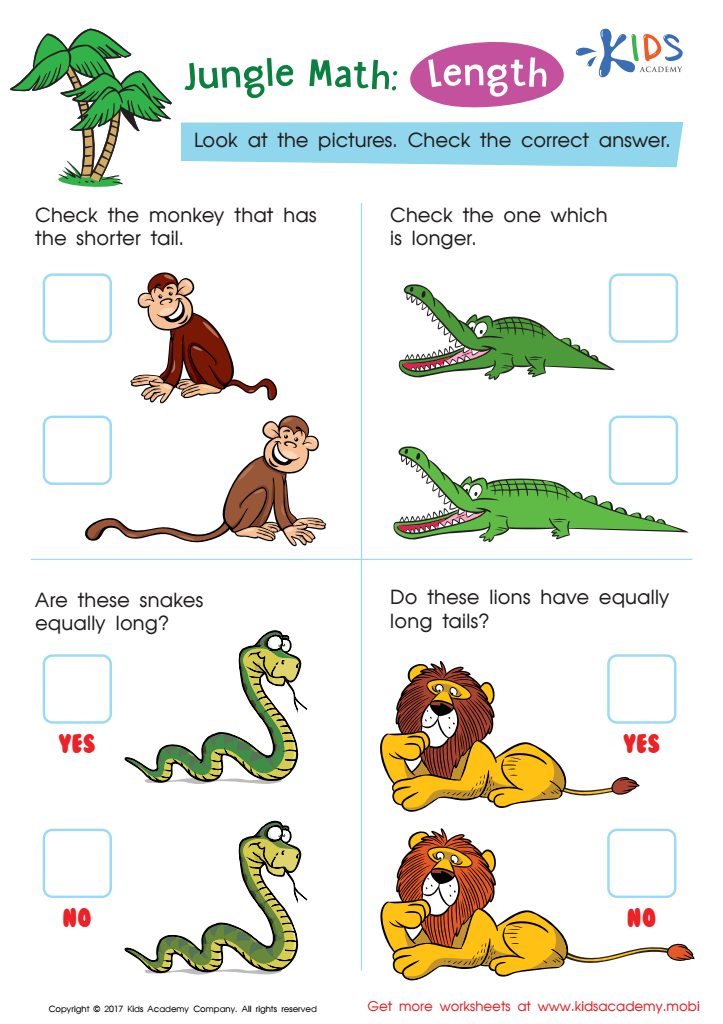

Which One Is Longer - Length Worksheet
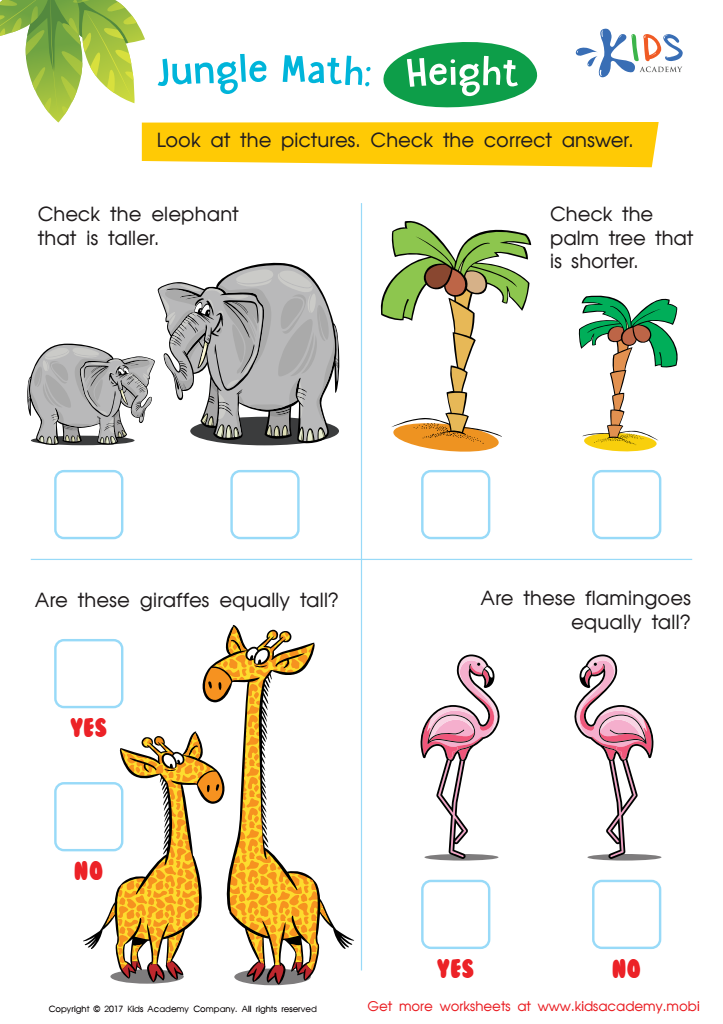

Which Is Taller Worksheet
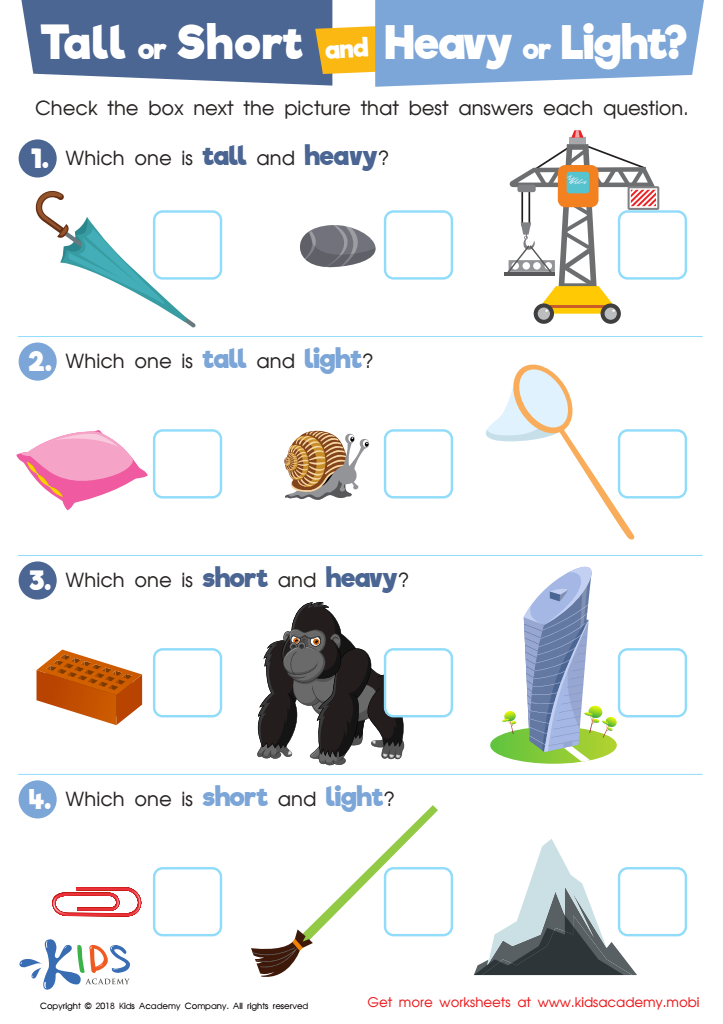

Tall or Short and Heavy or Light? Worksheet
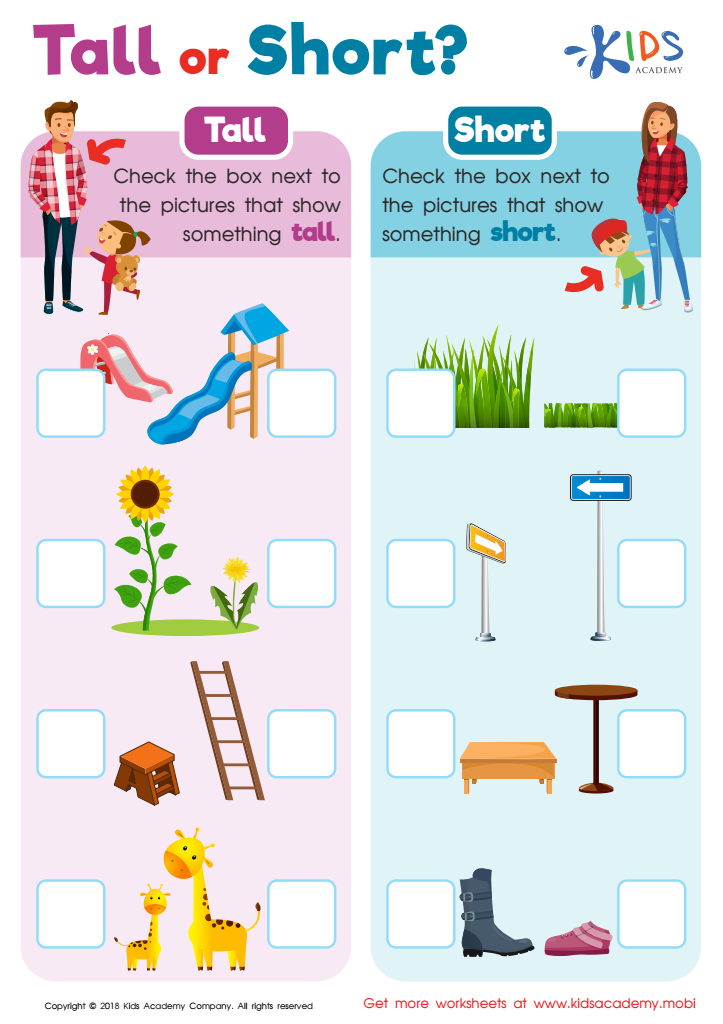

Tall or Short? Worksheet
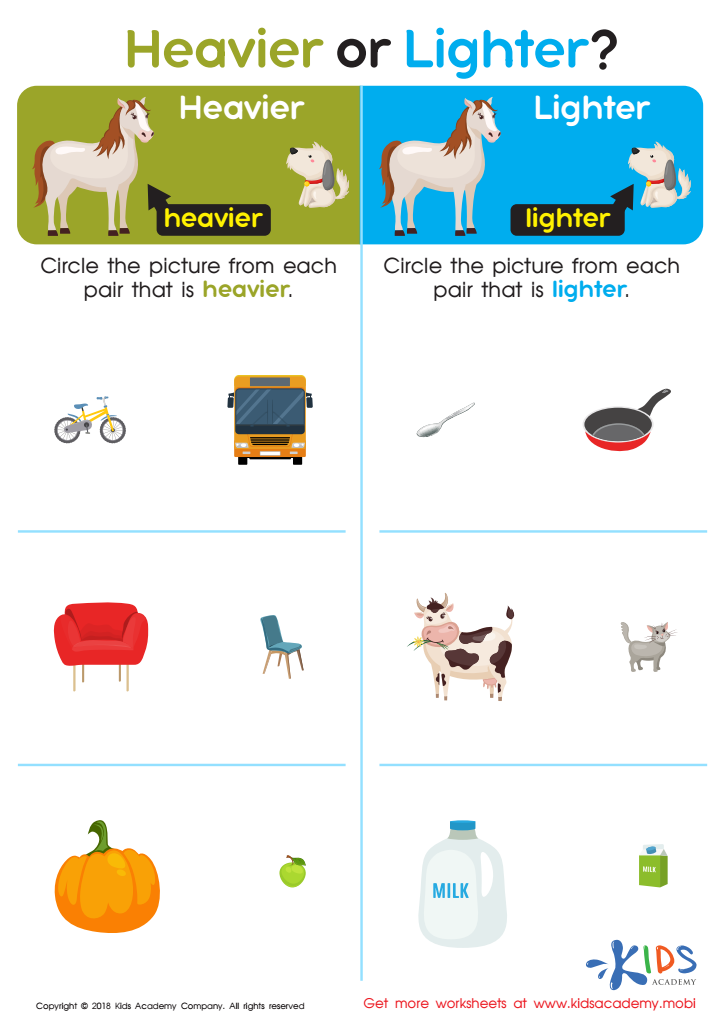

Heavier or Lighter? Worksheet
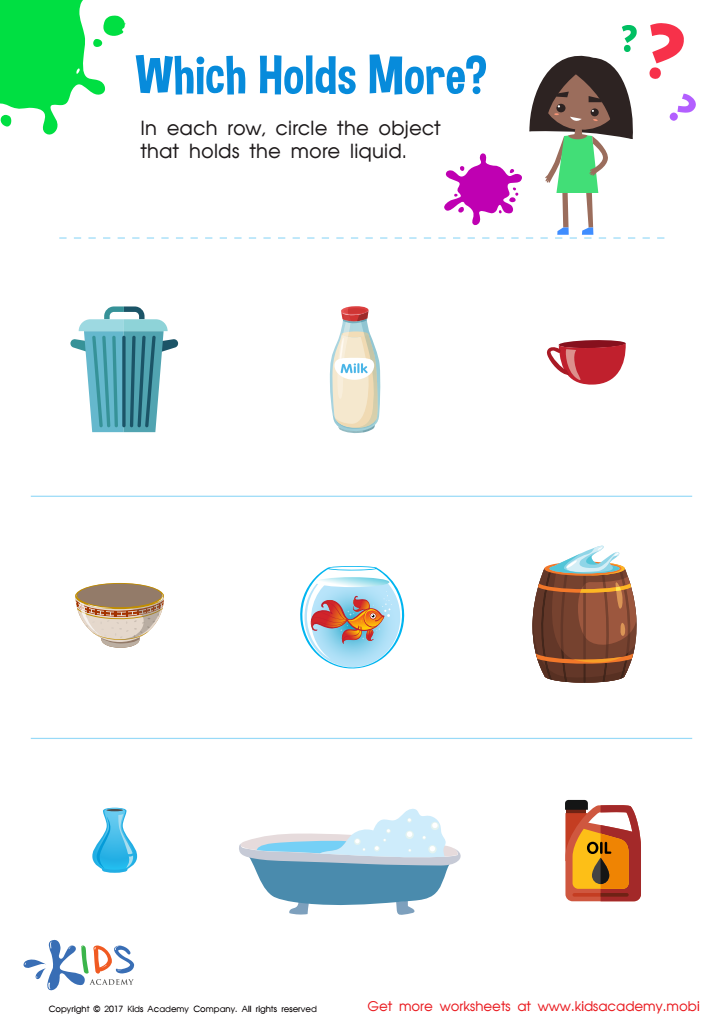

Which Holds More: Capacity Worksheet
Understanding basic measurement concepts is essential for children aged 4-5, as it forms a foundational skillset that supports their overall cognitive development and later learning in mathematics and science. At this tender age, kids begin to grasp ideas like length, weight, and volume through hands-on activities and everyday experiences. Teaching these concepts early on engages their natural curiosity about the world, allowing them to better understand and navigate their environments.
One primary reason parents and teachers should care is that measurement skills are deeply linked to problem-solving and critical thinking abilities. When a child learns to measure how long a toy is or how heavy an object feels, they engage in a process of comparison, estimation, and logical reasoning. These cognitive processes lay the groundwork for higher-level math skills, including addition, subtraction, and geometry.
Moreover, measurement activities can be highly interactive and fun, making learning an enjoyable adventure rather than a chore. Simple tasks, like measuring ingredients for a cooking project or comparing the heights of family members, offer real-life applications that make abstract concepts more tangible.
In short, fostering basic measurement skills in children provides them with crucial cognitive tools and life skills. It ensures they are well-prepared for future educational challenges, thereby promoting a lifelong love for learning and exploration.
 Assign to My Students
Assign to My Students






















